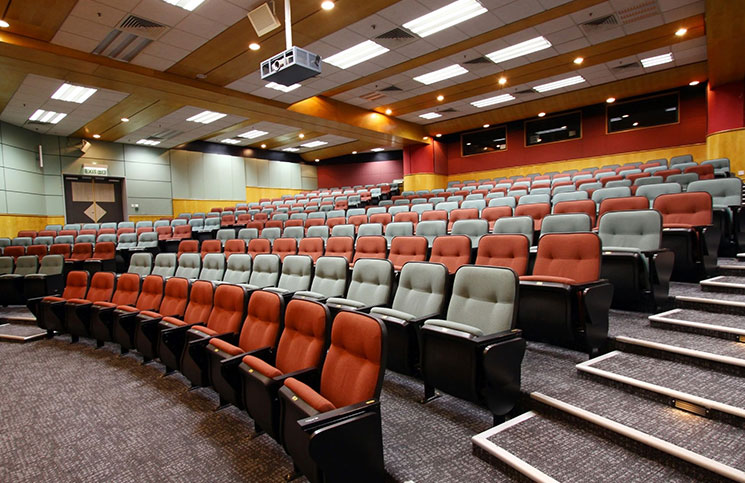Business schools face greater competition for domestic student enrolments not just between themselves but from an entirely different field, according to a new report by the Australian Business Deans Council.
The Future of Australian Business Schools was commissioned by the ABDC, which represents 39 university business faculties and schools, in late 2020 in response to the challenges the pandemic presented to higher education.
Data was collected from surveying two key stakeholder groups – the business school deans themselves and a selection of staff members from schools around Australia.
The report highlighted six key findings including that greater competition for domestic student enrolments was expected while international travel remained restricted.
It said business schools would have to ensure that their value propositions are able to compete with the now-cheaper STEM qualifications as well.
President of the ABDC Professor David Grant said in the report business schools had made incredible efforts in 2020 as public health and international travel restrictions prompted significant adjustments to learning and teaching, campus life, and the progression of research activities.
“Business schools demonstrated their agility and innovation in shifting teaching and assessment to online and offering additional support services to students off-campus, whether domestic or offshore,” Professor Grant said.
“Challenges for business schools and the wider university sector continue to emerge.
Over the last 12 months the sector has had to prepare for and adjust to a changing regulatory and funding environment.
“At the same time, declines in international student enrolment are expected to continue in 2021 and beyond as travel restrictions and geopolitical tensions continue to affect Australia’s attractiveness as a destination for international students.
“This latter issue is a particular concern for business schools, which have traditionally attracted the highest number of international enrolments.”
The survey was a collaboration between QS Quacquarelli Symonds and the Australian Business Deans Council.
2020 Australian Business School Survey Key Findings
Greater competition for domestic student enrolments is expected while international travel remains restricted
A widely anticipated reduction in international student enrolments over the coming years has caused many schools to place an increased focus on the domestic student market, from which applications and enrolments are expected to increase in the coming intakes. As a result, greater competition is expected – not just between business schools themselves, but from other disciplines, particularly those in the STEM field. This competition is expected to be heightened as a result of the recently implemented course funding changes, which have reduced Commonwealth Supported Place (CSP) contributions for business-related courses, and lowering the cost of student contributions for STEM degrees. To generate healthy enrolment numbers and maintain their share of the domestic student market, schools will be looking to create more distinctive brand and product differentiation from their competitors, and to ensure that their value propositions are able to compete with the now-cheaper STEM qualifications.
Despite tough conditions in 2020, schools were able to effectively deliver a full year of learning
The COVID-19 pandemic presented an unprecedented challenge for higher education in 2020, and Australia’s business schools were no exception. While the pandemic has largely been brought under control in Australia, the sector is expected to face ongoing challenges in research funding, student recruitment, international collaboration, and teaching and learning. Despite this, the schools surveyed in this project report having managed remarkably well, quickly pivoting to online instruction to deliver a full year of teaching, deploying employee assistance and outreach programs to help manage staff welfare, and exploring innovative opportunities for research partnerships, international collaboration and novel course offerings to help manage the challenges of the present moment and secure a stable and successful future.
Online learning is here to stay, though schools will differ in the extent to which they balance online and face-to-face instruction
One of the most notable changes to business schools in 2020 was the rapid and largely unplanned transition of face- to-face instruction to entirely online teaching, necessitated by the widespread enactment of COVID-19 emergency measures. Deans, administrative and teaching staff alike generally share a belief that some of these changes will remain in place permanently within their school – particularly the traditional lecture. However, there are varying levels of enthusiasm for this approach, and over the coming months schools will be looking to develop new models for content delivery that can find the ‘sweet spot’ between cost savings, meeting the needs of students and teaching staff, and providing a ‘COVID-safe’ environment.
With travel restrictions remaining in place, schools will look to be creative in how they foster collaboration with their overseas counterparts
The heavy international travel restrictions which have been in place since early 2020 have disrupted the international operations of Australia’s business schools – particularly by restricting the flow of international students to-and-from Australia, and limiting the opportunity for collaboration between Australian and overseas schools in research, teaching and other operations. In light of this, schools have been exploring new and innovative ways to continue to maintain their international links, such as virtual study tours and internships, curriculum collaboration with overseas institutions, and fostering arrangements which will allow students to commence their studies in their home country and travel to Australia when they are able to do so. With these restrictions expected to be in place for the foreseeable future, such measures will be vital for maintaining the global status of Australia’s business schools.
Many schools are exploring ways to innovate their course offerings and offer experiences other than the standard degree model
With tough economic conditions expected to lead to greater interest in upskilling from the postgraduate and established professional market (MBA programs in particular), many schools are looking at ways to tailor their course offerings to meet the needs of potential students whose study requirements are not necessarily met by a standard degree program. Along with increased offerings of fully online courses, schools are expanding their offerings of short courses, and designing innovative ‘stackable’ and ‘build your own degree’ programs that offer greater choice and flexibility to a more diverse pool of potential students.
Greater collaboration with industry will be a high priority for many schools in the future, particularly for research opportunities
With research funding expected to be par ticularly hard hit over the coming years due to sector-wide revenue declines, schools have identified the need to look for new opportunities to diversify their sources of research funding. In particular, opportunities to increase the number and scale of industry collaborations were commonly mentioned, with business schools uniquely well positioned to conduct research to help organisations of all types navigate and understand the changes that COVID-19 has precipitated within the world of work, such as the rapid expansion of working-from-home and the challenges presented in managing a remote workforce, as well as how to maintain staff wellbeing during periods of difficulty and uncertainty. Some schools are already taking advantage of opportunities to collaborate with industry on these topics, and others will be expanding their efforts to do so in 2021 and beyond.










